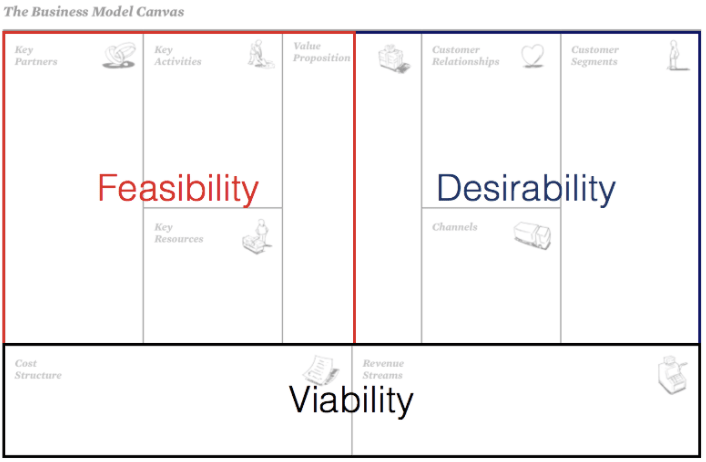The Eight Shocks Of Graduate Jobs
When you’re studying, it’s easy to romanticise or dread full time work.
That’s because we’re picturing one single day in the workplace, which is often something unremarkable.
But full time work has some shocks in store: some are good, and some are not…
1. “I’ve never seen so much money!”
Those first two weeks were ok, and now you receive your payslip: $1,440
One Thousand, Four Hundred and Forty Dollars.
ONE THOUSAND. FOUR HUNDRED. AND FORTY.
And they’re going to do it again in two weeks time?
What an absolute scam!
Don’t they realise how incompetent you are?
A few years ago you washed cars for $10!
It’s an overwhelming sensation.
So, so much money. And you didn’t even work that hard.
2. “Where did all my money go?”
The thing is, you used to make that $10 car washing money work hard for you.
That was three separate coffees out with friends.
Instead, looking at your bank statement, you realise you spent more than twice that on parking each day.
Rent adds up.
Drinks at the bar add up.
Brunch adds up.
Car costs add up.
And I only get $1,440 a fortnight to cover it all?
This job sucks!
3. Your weekends change
The first thing you notice about your weekend is that it’s all yours.
100% up for grabs.
No work, no study, no wrangling other students for group assignments.
Then you notice your energy levels – you’re exhausted.
The idea of staying up til 4am sounds fantastic but feels terrible.
You also have way more stuff to cram in your weekend.
Your friends from school are no longer by your side during the week, so you either have to make an active effort to see them or risk the relationship dwindling away.
The same goes for your hobbies – things that you previously could do at any time now have to go on either Saturday or Sunday.
That’s the shock – so much freedom, but also so many tradeoffs to make with your time, money and energy.
4. Hitting the wall
The temptation when faced with a tradeoff is to say “Porque No Los Dos?” and do everything.
Temporarily, this is a great idea.
You’ll remember the nights you stayed out much more vividly than the nights you went to bed at a sensible time.
The problem is, this isn’t avoiding a tradeoff at all, it’s just bringing in a new commodity to the trade table: You.
Your energy, your physicality, your attention, your mental health and your general wellbeing.
By saying yes to everything, you guarantee that you’ll soon “Hit the wall”.
Worse, it will happen at an inconvenient time, and presents no quick fix solution.
My guess is that this happens because each individual ingredient takes an fluctuating amount of time.
Sometimes the task can be done in the background, but occasionally it takes up a large part of your thoughts and energy.
Think of work projects that suddenly get busy, family dramas, planning holidays, Christmas, etc.
This is all fine, until three of these things all peak at the same time.
Suddenly you’re at 180% of your mental capacity, and you shut down.
Instead of saying yes to everything, now you have to say no to some wonderful things in order to get back on track.
5. No longer wanting to indulge
The solution seems to be cutting back the extremes.
By all means have a drink, but maybe not 12 beers.
By all means go out, but maybe not all night.
By all means eat delicious and unhealthy food, but not every meal.
There’s a part of you that’s horrified; to see yourself no longer enjoying taking good things too far.
What’s even more bizarre is to see that the other part of you enjoys your newfound moderation.
Suddenly you’d rather play Settlers of Catan with friends and go home at 11pm.
Who is this person?
You’re drinking tea?
You’re friends with your parents?
You’d rather spend time in a cozy lounge room than a noisy bar?
You’ve changed, man.
6. Seeing true incompetence
It’s always been our assumption that adults have their act together.
The middle aged guy in the button up shirt sitting opposite you on the train?
He’s probably great at his job.
The marketing director who made the ads on display near your house?
She’s probably a talented, professional person.
Until you find yourself sitting next to them all day.
Until you see how these “Grown Ups” are barely scraping by, doing juuuuust enough to satisfy the criteria.
Seeing incompetence is terrifying.
You realise just how human our workforce is, and how many of the people you were previously afraid of are actually no smarter than you.
You’ll see incompetence waste tens of thousands of dollars, ignore warning signs, support the wrong idea, and ignore the way of the future because it seems “risky”.
This is also a little inspiring.
You realise that you’re not far off being a proper employee, who can solve problems, make good decisions and keep people happy.
7. Seeing true genius
Not everyone is a moron.
See, the OTHER middle aged guy in the button up shirt sitting opposite you on the train?
He’s the most talented people manager you’ve ever encountered.
The marketing director who made the ads on display near your house?
Her creative process is incredible; you can’t believe how easily she turns terrible concepts into brilliant ideas.
These people diffuse difficult situations, casually reference ancient philosophers, pulling out relevant and amusing stories from the hundreds of cases they’re previously completed.
I’m not talking about someone who is good at their job.
This is when someone handles a situation so well, that you can’t work out how they did it.
It’s like a magic trick, seeing someone proverbially pull a rabbit out of a hat.
Seeing true genius is also terrifying.
It doesn’t make sense.
It’s also a little inspiring.
You suddenly feel a fire inside, that wants to go home and read fifty books and listen to fifty podcasts.
You can’t believe it – at uni the aim was to simply pass the subject. Now you have a genuine desire to master this subject, because you’ve seen what mastery looks like.
8. Suddenly finding stability
The final shock is when you realise you’ve built a good system.
It happened so gradually, but eventually you found a balance.
You still do lots of interesting things, but you’re also content with staying home and having a relaxing night.
Work takes up a lot of your mental and physical energy, but you can’t remember the last time you were in a serious panic.
You’ve also lost the cheeky 5kgs you put on when you first started.
This shock generally occurs when you meet a graduate who’s younger than you.
You recognise those red eyes on a Monday morning.
You see them looking lost in meetings.
You see them getting ready to hit the wall.
And you suddenly realise: huh, that’s no longer you.















